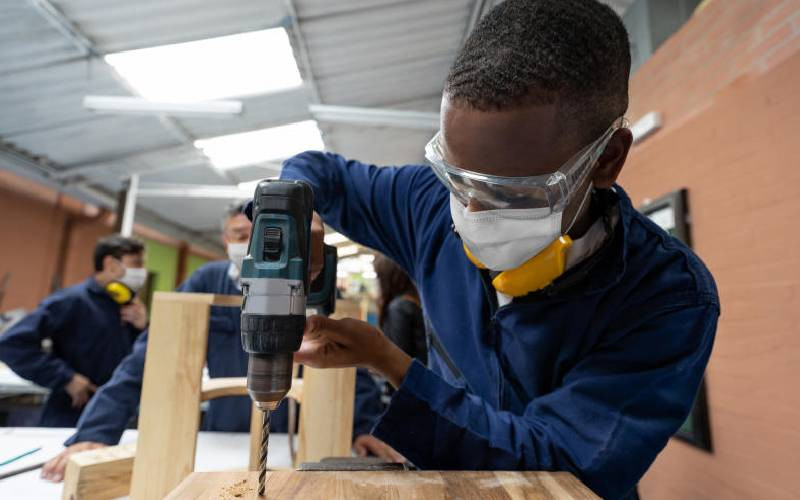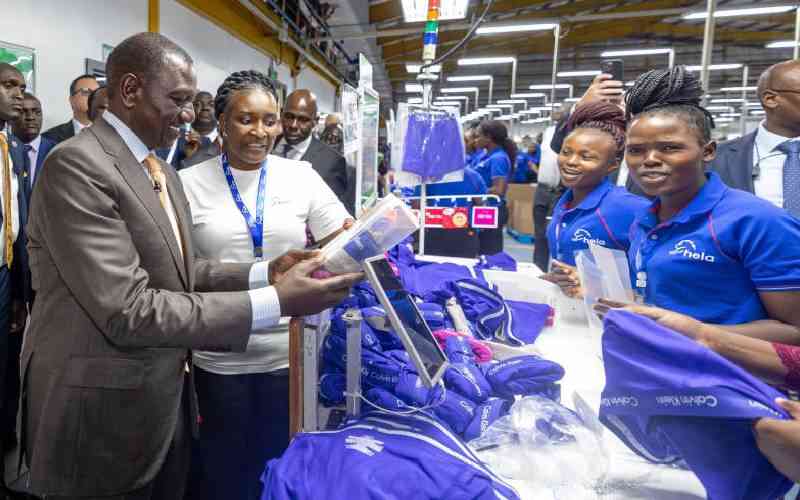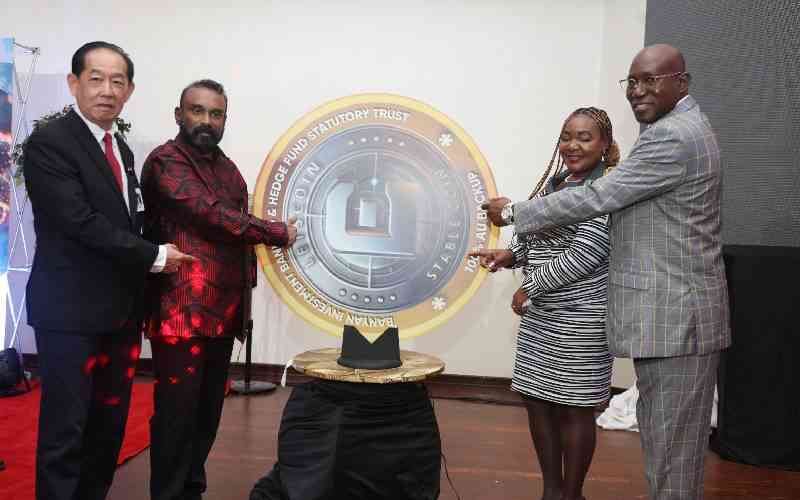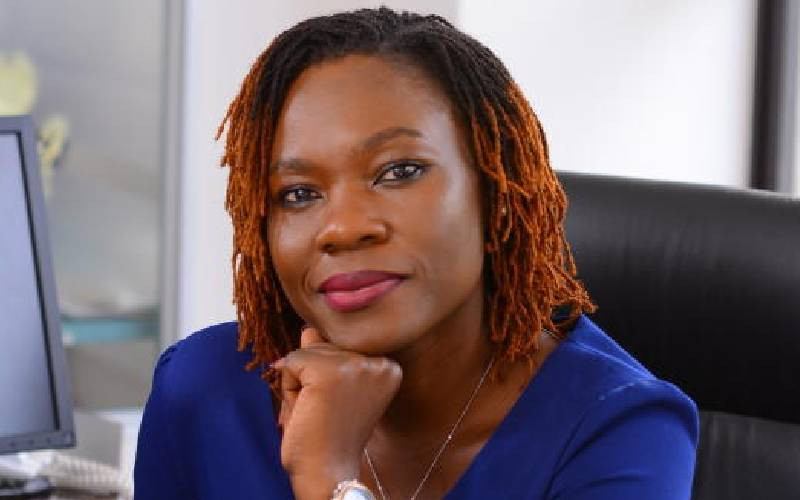
Timothy Kareithi, 23, recalls an incident when his father needed a plumber back in their home in Sirende, Trans Nzoia County. Even after promising that he would show up, a week later, he had yet to arrive.
A comment from his father, saying ‘If only we had someone in this house who could fix the toilet’, clearly expressing his frustration, became the fire that led him to take plumbing as a career path.
He is now enrolled at Don Bosco under the PropelA Dual apprenticeship programme run by Swisscontact, an international NGO working with the government and private sector to bridge the skills gap in the construction sector.
The program is run by Swisscontact and the apprentices are trained at Don Bosco.
His intention, he says, is to sell his skills to a market that he notes is in dire need of quality skilled professions.
“Sirende is not like Nairobi where we have many plumbers, companies, and fields of experience to gain expertise. Back home, plumbers are limited and they feel entitled too because he might be the only one so if he takes a month to come and do something for you, you will have to wait,” he says.
Swiss institutions
Mr Kareithi is one of the apprentices who have been onboarded to Don Bosco’s PropelA programme that seeks to bridge the gap between industry and training, a key challenge that has been raised several times by employers.
The program started in November 2022 and is supported by two Swiss institutions, Hilti Foundation, and Geberit International Sales AG. It involves training plumbers and electricians who are among the tradesmen the country is in dire need of.
“In Nairobi, when you call a plumber and he says no, in the next hour you will have another contact. But back home, you will have to wait for the availability of that same one you called,” says Mr. Kareithi.
A 2023 report by the Federation of Kenya Employers (FKE) on skills gap documents that the top TVET skills demand by the respondents’ enterprises are transport and logistics (21.3 per cent), electrical (21.1 per cent), building and construction (18.2 per cent).
Similarly, the most demanded engineering skills by enterprises are computer and software engineering (30.7 per cent) followed by electrical and electronics engineering (27.4 per cent) and mechanical and production engineering (25 per cent).
“Most of these enterprises studied (73.1 per cent) used training to fill the skills gap in their enterprises. These trainings were offered in collaboration with other organisations in capacity building space,” the FKE Skills Needs survey report 2023.
Mr Kareithi’s training involves 25 per cent classwork and 75 per cent hands-on fieldwork.
“This essentially means that in a month, an apprentice attends one week in their vocational training institution gaining relevant theoretical skills and three weeks gaining on-the-job training in companies,” reads the program’s outline.
Growing demand
It adds: “The dual learning approach seeks to create a pipeline of workers who can respond to the growing demand for skills in electrical and plumbing installation, as well as maintenance in Kenya’s construction sector.”
Paul Murimi, Lead Trainer and Head of the Electrical Department at the institution, cites that the model of the program targets to improve the quality of electrical engineers and electricians being released into the market.
This he terms as the major gap currently existing in the industry.
“If you have had a chance to interact with the market especially in the construction industry, what is not very well seen or lacking is the quality of work. What we are realizing is that we have electricians who can fix electrical problems but the quality of their work is low. That gap alone may be very thin when you look at it from a layman’s perspective but from a professional level, it is huge even now that the skills are upgrading,” says Mr Murimi.
He says for the institution, the apprentices are meant to appreciate not just the work being done but also the quality and relationship with clients.
“For example, as you terminate a cable, how are you doing it? As you are done with fixing, what do you do after that? We even look at housekeeping, tidiness, and relate the quality skills with the needs of the clients,” he says.
He says the modeling of the training in the program not only allows an apprentice to specialize in an area they are good at but also be at par with the changes happening in the market. This is different from what is taking place in other training institutions or how even Mr Murimi himself was trained.
“I can testify that for the last one-and-half years we have been with cohort one they are not only able to practice more of what they learn in school and but also from the company. Some of the things they do it took me four years to learn,” he notes.
He adds: “After a very short time the knowledge that is learned in other programs for may be two three years you can see the fruits within one year. At first, nobody could comprehend the magnitude of this program in the life of an apprentice but as time passes we can see what they can do.
Mr. Murimi notes that some of the apprentices already have pre-existing knowledge and just need to be steered to develop their passions pointing that ‘in the market we know what is flooded and what is not’.
Such include Eunice Makena, 26, who before joining Don Bosco Institute, had trained as a Grade III wireman at Christian Industrial and Training Centre. She got wind of the program while taking her attachment at Ultra Power, an electrical installation and maintenance company.
“Electrical has been my passion for some time. I have been living on my own and whenever there is a problem with electrical connections or devices in my place, it is me who repairs. In this process even electrical devices. I decided this is my passion, let me go learn more about it, and I love it,” she says.
Glaring differences
Timothy Vera, Lead Trainer and Head of the Plumbing Department who boasts over a decade of experience having worked with the National Industrial Training Authority (NITA), emphasizes the glaring differences between the program and what is offered in other Technical and Vocational Education and Training (TVET).
A key difference he notes is that apprentices get to interact with modern tools in the learning, and this reduces the instances when companies have to train workers when they absorb them.
“Initially, we used to have students in TVET institutions who, when they go to the industry, we find out they are starting another journey to study because they are used to theory.
This is the gap this program bridges to enable them to be absorbed directly into the industry,” he says.
It is a view that Veroline Amadi, a trainer in the electrical department, shares. “In other institutions, the syllabus they use is still the old one but here we teach innovations including solar owing to the changes in the market,” she says.
So how do the trainers get to stay ahead of even the students who are attached in high-quality firms?
“We usually have regular trainer of trainers at the end of semesters like this time we have organized two,” says Mr. Vera.
“Whenever the apprentices come back to class from the industry, they have more questions so if the trainer is not at par in terms of knowledge and skills, it’s easy to be challenged”.
 The Standard Group Plc is a multi-media organization with investments in media platforms spanning newspaper print
operations, television, radio broadcasting, digital and online services. The Standard Group is recognized as a
leading multi-media house in Kenya with a key influence in matters of national and international interest.
The Standard Group Plc is a multi-media organization with investments in media platforms spanning newspaper print
operations, television, radio broadcasting, digital and online services. The Standard Group is recognized as a
leading multi-media house in Kenya with a key influence in matters of national and international interest.











